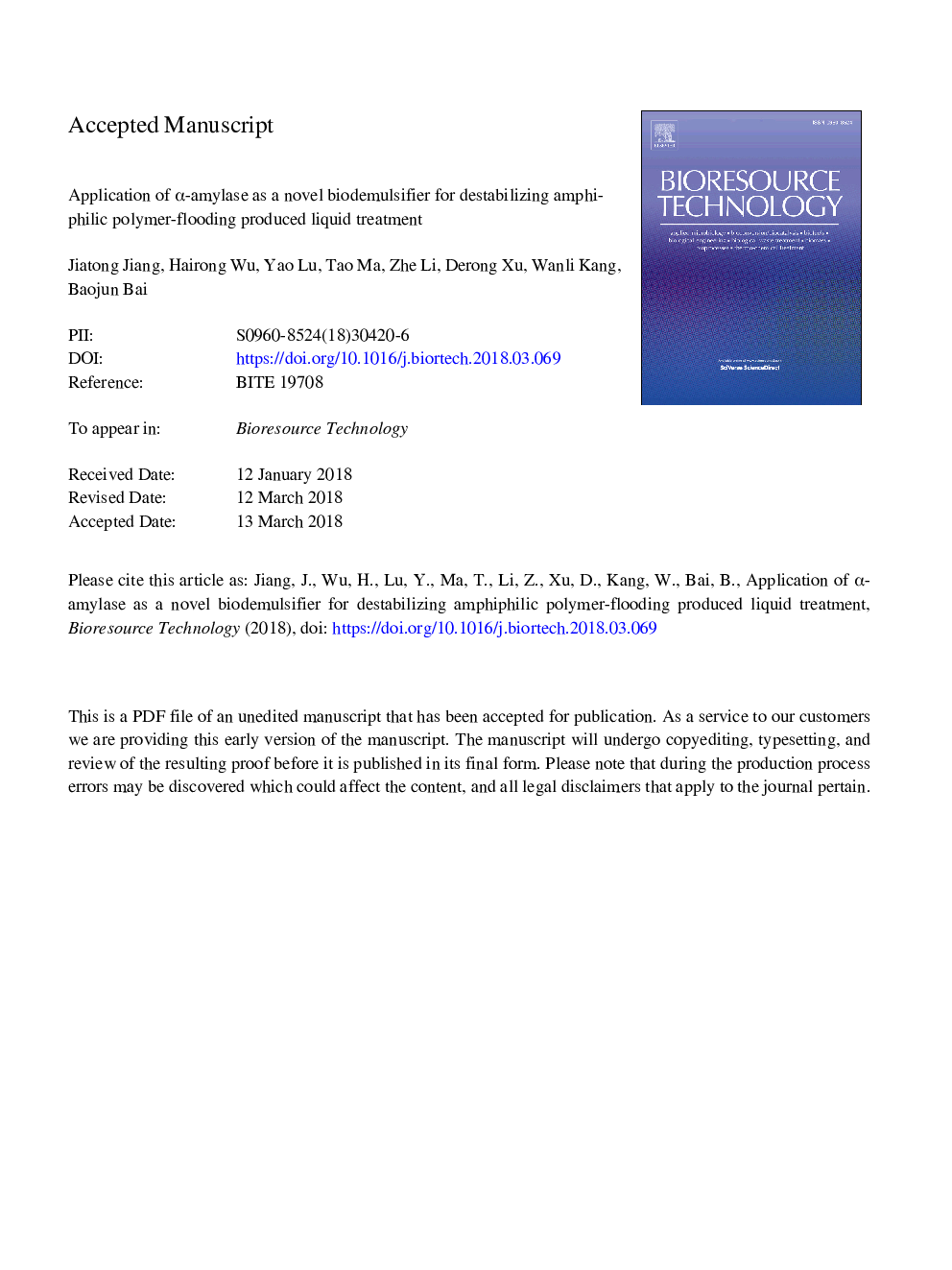| Article ID | Journal | Published Year | Pages | File Type |
|---|---|---|---|---|
| 7067422 | Bioresource Technology | 2018 | 31 Pages |
Abstract
The performance and de-emulsification mechanism of α-amylase, a novel environmental friendly biodemulsifier in petroleum industry, was investigated at room temperature. The effects of α-amylase on the viscosity of amphiphilic polymer solution and de-emulsification rate were studied by changing the concentration of α-amylase, temperature and salinity. Polymer molecular weight, Zeta potential, interfacial film strength and interfacial tension were measured to investigate the de-emulsification mechanism of α-amylase. The results show that α-amylase is an efficient biodemulsifier to increase the de-emulsification rate of amphiphilic polymer emulsions. Hydrolysis of α-amylase to amphiphilic polymers destroys the structure of the amphiphilic polymer, thereby reduces the viscosity and the interfacial film strength of the system. Once de-emulsification is completed, the lower layer, i.e. the emulsified layer, will be clear. Thus, α-amylase can be applied as an effective de-emulsifier for amphiphilic polymer-stabilized O/W emulsion.
Related Topics
Physical Sciences and Engineering
Chemical Engineering
Process Chemistry and Technology
Authors
Jiatong Jiang, Hairong Wu, Yao Lu, Tao Ma, Zhe Li, Derong Xu, Wanli Kang, Baojun Bai,
